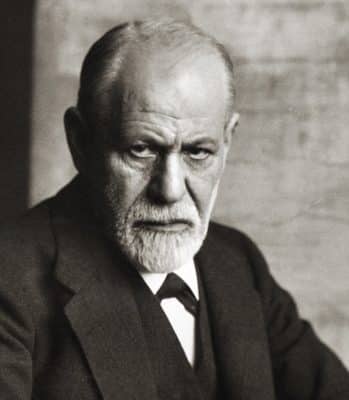What is Psychotherapy?
Origins, Methods, Areas of Application, and Limitations
Over the past 150 years, psychotherapy has developed into a central component of mental health care. Its roots reach deep into human history – conscious conversation about worries, fears, and inner conflicts is as old as human language itself. However, psychotherapy only emerged as an independent, scientifically based procedure in the late 19th and early 20th centuries.
Origins and Development of Psychotherapy
Modern psychotherapy essentially goes back to the work of Sigmund Freud, who developed a method of psychoanalysis that focuses on the unconscious. Freud recognized that many psychological illnesses can be caused by repressed experiences and inner conflicts, and attempted to make these accessible through therapeutic dialogue and the interpretation of dreams.
Over the decades, numerous other approaches to psychoanalysis have developed, each explaining and treating human experience and behavior in different ways. The various psychotherapeutic approaches can be roughly divided into four main streams:
The Four Main Streams of Psychotherapy
1. Depth-psychologically based and analytical methods

These forms of therapy assume that unconscious conflicts and early childhood influences influence our current feelings and behavioral patterns. The goal is to uncover, understand, and process unconscious dynamics. These include:
- Psychoanalysis (according to Freud)
- Depth-psychologically based psychotherapy
- Individual psychology (according to Adler)
- Analytical psychology (according to Jung)
2. Behavioral Therapy
Behavioral therapy is based on learning theory and focuses on specific, current problems and behaviors. It is assumed that many psychological problems arise from learned, unfavorable behavioral patterns that can be replaced with new, healthier ones. Typical methods are:
- Confrontation therapy for anxiety
- Cognitive restructuring for depressive thought patterns
- Behavioral exercises to strengthen self-confidence
3. Humanistic Procedures
The focus here is on the individual’s striving for personal growth, self-realization, and authentic experience. The therapist meets the client as an equal and with high respect. The most well-known approaches include:
- Talk therapy (according to Carl Rogers)
- Gestalt therapy
- Psychodrama
- Existential Analysis and Logotherapy
4. Systemic Therapy
Systemic therapy does not view psychological suffering in isolation, but rather in the context of social relationships – especially the family. Symptoms are understood as expressions of communication or relationship dynamics. The goal is to make existing patterns visible and open up new perspectives.
What does psychotherapy help with?
Psychotherapy is a proven treatment for a wide range of psychological, psychosomatic, and emotional complaints. It can help with:
- Depression
- Anxiety and panic disorders
- Posttraumatic stress disorder (PTSD)
- Obsessive-compulsive disorder
- Eating disorders (e.g., anorexia, bulimia)
- Personality disorders
- Sleep disorders of psychological origin
- Chronic pain (e.g., somatoform disorders)
- Crises and stressful situations
- Self-esteem problems and inner emptiness
- Relationship problems and separation situations
- Processing loss and grief
- Crises of meaning in life and orientation
The goal is not only to alleviate symptoms, but above all to understand the underlying causes and to develop new ways of thinking, feeling, and acting.
Where does psychotherapy reach its limits?
As effective as psychotherapy can be, it is not a panacea. There are clear limits to its effectiveness:
- Organically caused mental disorders, such as severe neurological diseases or dementia, usually cannot be treated with psychotherapy alone. Close collaboration with physicians is required here.
- In acute psychotic conditions or manic episodes, psychiatric treatment is usually necessary first. Psychotherapy can be helpful as an adjunct or during the stabilization phase.
- Addiction disorders often require a specific addiction therapy approach, which can be supplemented by, but not replaced by, traditional psychotherapy.
- If the patient lacks motivation or insight, therapy may be ineffective. Change usually requires the active coöperation and willingness of the client.
- Even economic, legal, or medical problems cannot be solved through psychotherapy – however, it can help to better cope with these stresses.

Psychotherapy is a powerful tool for spiritual healing and development. It addresses inner processes, helps understand and process stressful experiences, and promotes personal growth and joy in life.
Whether classically analytical, solution-oriented, behavioral therapy, or holistic – the right therapeutic relationship and method can pave the way from inner suffering back to greater clarity, stability, and quality of life.
As a naturopathic practitioner for psychotherapy, I am happy to support you – with empathy, expertise, and the deep conviction that every person has the capacity for change and healing within themselves.
My therapeutic focus: Gestalt therapy, couples therapy, and sex therapy
In my practice, I place a special focus on Gestalt therapy, couples therapy, and sex therapy – three fields that complement each other perfectly and correspond to the holistic approach of my therapeutic work.
Gestalt therapy: Becoming alive in the here and now
Gestalt therapy is a humanistic method that assumes that healing is possible primarily through conscious perception, direct experience, and personal responsibility. The focus is on the “here and now”: How do you experience yourself in this moment? What thoughts, feelings, and bodily sensations are present – and what is perhaps being avoided, split off, or not expressed?
The goal of Gestalt therapy is to bring unresolved inner “gestalts” (i.e., unprocessed experiences, conflicts, or needs) into consciousness, to clarify them, and to integrate them. We work with conversation, body awareness, inner parts, role play, or creative forms of expression – always in a safe, respectful space.
This form of therapy is particularly suitable for people who:
- want to understand themselves better
- suffer from emotional emptiness or inner turmoil
- struggle with decision-making difficulties
- Want to change old relationship patterns
- Long for more vitality, clarity, and authenticity
Couples Therapy: Relationships as an Opportunity for Development
In couples therapy, I support couples in recognizing entrenched communication patterns, healing emotional wounds, and reestablishing lively, respectful contact. Relationship crises don’t necessarily mean the end – they are often an expression of a new stage of development.
Together we will look at:
- Where are misunderstandings, unspoken expectations, or simmering conflicts?
- How can both partners feel heard and understood again?
- Which needs and boundaries should be communicated more clearly?
- How can intimacy, trust, and connection (re)emerge?
I work impartially with both partners – that means I don’t take sides, but rather support both sides in showing themselves authentically and encountering each other anew.
Sex Therapy: Sensuality, Closeness, and Self-Determination
Sexuality is a profoundly personal and t the same time, it is a central area of life. It is an expression of intimacy, desire, and closeness — but also a place where shame, insecurity, and pain become noticeable. In sex therapy, I offer a safe space where sexual concerns can be discussed openly – without judgment, taboo, or coercion.
Possible topics include:
- Lack of desire, difficulty achieving orgasm, or pain during sex
- Different sexual needs within a relationship
- Insecurities surrounding identity, orientation, or sexual preferences
- Effects of trauma or stressful experiences on sexuality
- The desire for more fulfillment, mindfulness, and communication in sexuality
The goal is to (re)discover a relaxed, self-determined, and vibrant approach to one’s own sexuality – in harmony with one’s own history, personality, and respective relationship forms.